Atatürk: A Legacy Under Threat
The founders of countries occupy a unique position within modern society. They are often viewed either as heroic and mythical figures or deeply problematic by today’s standards – take the obvious examples of George Washington. Long-held up by all Americans as a man unrivalled in his courage and military strategy, he is now a figure of vilification by leftists, who are eager to point out his ownership of slaves.
Whilst many such figures face similar shaming nowadays, none are suffering complete erasure from their own society. That is the fate currently facing Mustafa Kemal Atatürk, whose era-defining liberal reforms and state secularism now pose a threat to Turkey’s authoritarian president, Recep Tayyip Erdoğan.
To understand the magnitude of Atatürk’s legacy, we must understand his ascent from soldier to president. For that, we must go back to the end of World War One, and Turkey’s founding.
The Ottoman Empire officially ended hostilities with the Allied Powers via the Armistice of Mudros (1918), which amongst other things, completely demobilised the Ottoman army. Following this, British, French, Italian and Greek forces arrived in and occupied Constantinople, the Empire’s capital. Thus began the partitioning of the Ottoman Empire: having existed since 1299, the Treaty of Sèvres (1920) ceded large amounts of territory to the occupying nations, primarily being between France and Great Britain.
Enter Mustafa Kemal, known years later as Atatürk. An Ottoman Major General and fervent anti-monarchist, he and his revolutionary organisation (the Committee of Union and Progress) were greatly angered by Sèvres, which partitioned portions of Anatolia, a peninsula that makes up the majority of modern-day Turkey. In response, they formed a revolutionary government in Ankara, led by Kemal.
Thus, the Turkish National Movement fought a 4-year long war against the invaders, eventually pushing back the Greeks in the West, Armenians in the East and French in the South. Following a threat by Kemal to invade Constantinople, the Allies agreed to peace, with the Treaty of Kars (1921) establishing borders, and Lausanne (1923) officially settling the conflict. Finally free from fighting, Turkey declared itself a republic on 29 October 1923, with Mustafa Kemal as president.
His rule of Turkey began with a radically different set of ideological principles to the Ottoman Empire – life under a Sultan had been overtly religious, socially conservative and multi-ethnic. By contrast, Kemalism was best represented by the Six Arrows: Republicanism, Populism, Nationalism, Laicism, Statism and Reformism. Let’s consider the four most significant.
We’ll begin with Laicism. Believing Islam’s presence in society to have been impeding national progress, Atatürk set about fundamentally changing the role religion played both politically and societally. The Caliph, who was believed to be the spiritual successor to the Prophet Muhammad, was deposed. In their place came the office of the Directorate of Religious Affairs, or Diyanet – through its control of all Turkey’s mosques and religious education, it ensured Islam’s subservience to the State.
Under a new penal code, all religious schools and courts were closed, and the wearing of headscarves was banned for public workers. However, the real nail in the coffin came in 1928: that was when an amendment to the Constitution removed the provision declaring that the “Religion of the State is Islam”.
Moving onto Nationalism. With its roots in the social contract theories of thinkers like Jean-Jacques Rousseau, Kemalist nationalism defined the social contract as its “highest ideal” following the Empire’s collapse – a key example of the failures of a multi-ethnic and multi-cultural state.
The 1930s saw the Kemalist definition of nationality integrated into the Constitution, legally defining every citizen as a Turk, regardless of religion or ethnicity. Despite this however, Atatürk fiercely pursed a policy of forced cultural conformity (Turkification), similar to that of the Russian Tsars in the previous century. Both regimes had the same aim – the creation and survival of a homogenous and unified country. As such, non-Turks were pressured into speaking Turkish publicly, and those with minority surnames had to change, to ‘Turkify’ them.
Now Reformism. A staunch believer in both education and equal opportunity, Atatürk made primary education free and compulsory, for both boys and girls. Alongside this came the opening of thousands of new schools across the country. Their results are undeniable: between 1923 – 38, the number of students attending primary school increased by 224%, and 12.5 times for middle school.
Staying true to his identity as an equal opportunist, Atatürk enacted monumentally progressive reforms in the area of women’s rights. For example, 1926 saw a new civil code, and with it came equal rights for women concerning inheritance and divorce. In many of these gender reforms, Turkey was well-ahead of other Western nations: Turkish women gained the vote in 1930, followed by universal suffrage in 1934. By comparison, France passed universal suffrage in 1945, Canada in 1960 and Australia in 1967. Fundamentally, Atatürk didn’t see Turkey truly modernising whilst Ottoman gender segregation persisted
Lastly, let’s look at Statism. As both president and the leader of the People’s Republican Party, Atatürk was essentially unquestioned in his control of the State. However, despite his dictatorial tendencies (primarily purging political enemies), he was firmly opposed to dynastic rule, like had been the case with the Ottomans.
But under Recep Tayyip Erdoğan, all of this could soon be gone.
Having been a high-profile political figure for 20 years, Erdoğan has cultivated a positive image domestically, one focused on his support for public religion and Turkish nationalism, whilst internationally, he’s received far more negative attention focused on his growing authoritarian behaviour. Regarded widely by historians as the very antithesis of Atatürk, Erdoğan’s pushback against state secularism is perhaps the most significant attack on the founder’s legacy.
This has been most clearly displayed within the education system. 2017 saw a radical shift in school curriculums across Turkey, with references to Charles Darwin’s theory of evolution being greatly reduced. Meanwhile, the number of religious schools has increased exponentially, promoting Erdoğan’s professed goal of raising a “pious generation of Turks”. Additionally, the Diyanet under Erdoğan has seen a huge increase in its budget, and with the launch of Diyanet TV in 2012, has spread Quranic education to early ages and boarding schools.
The State has roles to play in society but depriving schoolchildren of vital scientific information and funding religious indoctrination is beyond outrageous: Soner Cagaptay, author of The New Sultan: Erdoğan and the Crisis of Modern Turkey, referred to the changes as: “a revolution to alter public education to assure that a conservative, religious view of the world prevails”.
There are other warning signs more broadly, however. The past 20 years have seen the headscarf make a gradual reappearance back into Turkish life, with Erdoğan having first campaigned on the issue back in 2007, during his first run for the presidency. Furthermore, Erdoğan’s Justice and Development Party (AKP), with its strong base of support amongst extremely orthodox Muslims, has faced repeated accusations of being an Islamist party – as per the constitution, no party can “claim that it represents a form of religious belief”.
Turkish women, despite being granted legal equality by Atatürk, remain the regular victims of sexual harassment, employment discrimination and honour killings. Seemingly intent on destroying all the positive achievements of the founder, Erdoğan withdrew from the Istanbul Convention (which forces parties to investigate, punish and crackdown on violence against women) in March 2021.
All of these reversals of Atatürk’s policies reflect the larger-scale attempt to delete him from Turkey’s history. His image is now a rarity in school textbooks, at national events, and on statues; his role in Turkey’s founding has been criminally downplayed.
President Erdoğan presents an unambiguous threat to the freedoms of the Turkish people, through both his ultra-Islamic policies and authoritarian manner of governance. Unlike Atatürk, Erdoğan seemingly has no problems with ruling as an immortal dictator, and would undoubtedly love to establish a family dynasty. With no one willing to challenge him, he appears to be dismantling Atatürk’s reforms one law at a time, reducing the once-mythical Six Arrows of Kemalism down to a footnote in textbooks.
A man often absent from the school curriculums of Western history departments, Mustafa Kemal Atatürk proved one of the most consequential leaders in both Turkish history, and the 20th Century. A radical and a revolutionary he may have been, but it was largely down to him that the Turkish people received a recognised nation-state, in which state secularism, high-quality education and equal civil rights were the norm.
In our modern world, so many of our national figures now face open vilification from the public and politicians alike. But for Turkey, future generations may grow up not even knowing the name or face of their George Washington. Whilst several political parties and civil society groups are pushing back against this anti-Atatürk agenda, the sheer determination displayed by Erdoğan shows how far Turks must yet go to preserve the founder’s legacy.

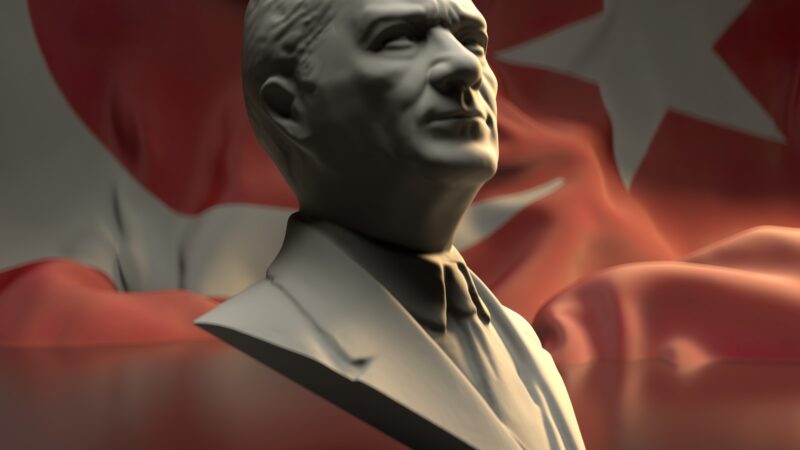
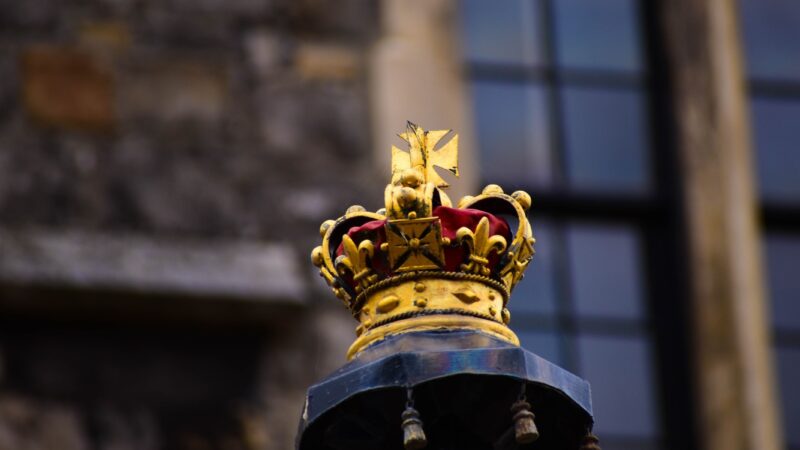
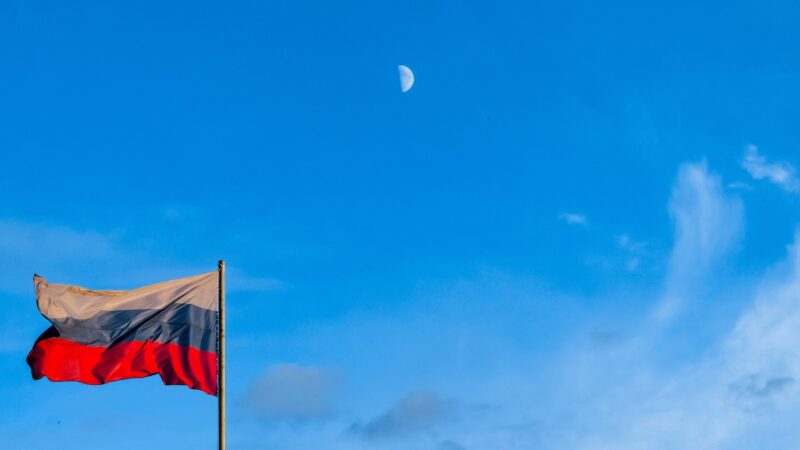

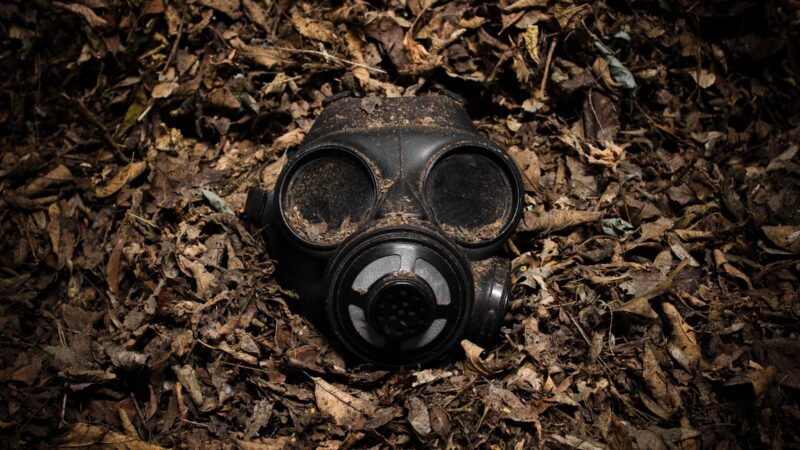
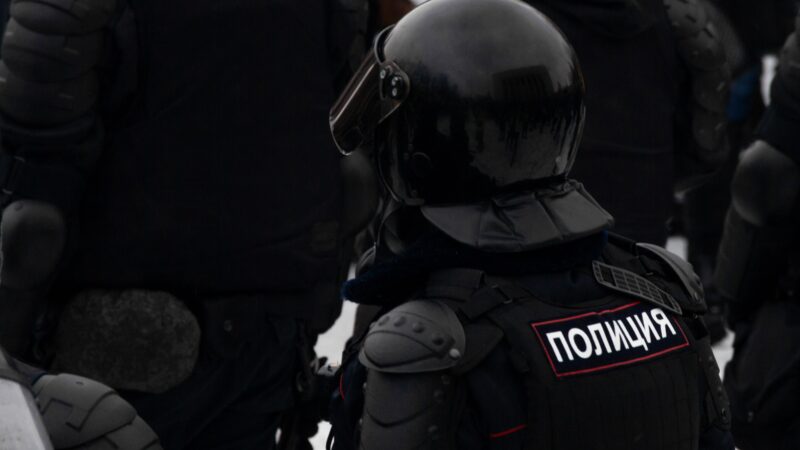
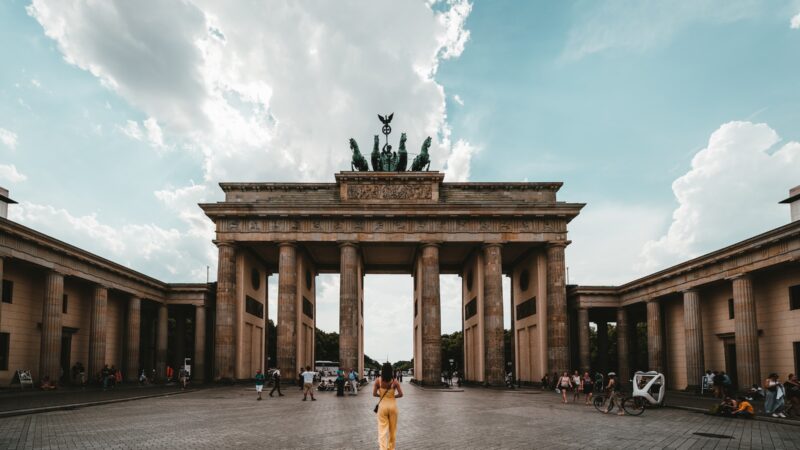
In Defence of Marriage
In our 21st Century society, the concepts of love and commitment in relationships have become twisted from what they originally meant to older generations. With the rise of social media (and dating apps in particular), people can form many simultaneous online connections with people who they know next to nothing about and then end the messaging and simply forget about them; this isn’t, in my opinion, a reliable nor realistic way to find a compatible partner – we fall in love with souls, personalities and imperfections, not the photoshopped images someone wants us to associate them with.
But putting aside the downsides and problems with technological romance we need to focus on the root of the bigger problem: many young people have become disillusioned with the idea of marriage, with many viewing it as an outdated and irrelevant institution with no real place in 21st Century life. Far from the high esteem, our ancestors placed this tradition, millennials today feel that there is no real point, that you can live together with your partner happily and contently without vows needing to be taken.
But why have attitudes towards marriage changed so much? This can partly be blamed on the economic situation this generation finds themselves in compared to that of their parents’ or grandparents’ – young people today are the first generation to be less well-off than their parents’ generation. Among many millennials, marriage remains the desired outcome for their relationship but simply isn’t financially realistic. In contrast to past generations, where all socio-economic groups married at roughly the same rate, today marriage is more prevalent among those with higher incomes and levels of education. Societal ideas of family and sex also contribute: with the growing “spectrum” of different gender identities ever-increasing, the nuclear family in decline in Britain and the rejection of the importance of values and beliefs in a relationship.
Young people find themselves nowadays wandering aimlessly in the world of dating, unsure of what sort of person they want to spend their life with, with only vague notions of appearance and personality. When they DO find someone, whether that be through a screen or in-person, the concept of marriage and lifelong commitment is a difficult one to approach, especially if you fear losing the person. Whilst this may indeed be a difficult topic to broach, it’s an extremely important one: if you want to marry, and believe yourself to have found a potential future spouse, you should declare your intentions early one – the longer you leave it, the harder it gets.
Many young people nowadays don’t seek a long-term commitment however, instead opting for casual flings, hook-ups based on a shared physical attraction and temporary pleasure. This ‘hook-up culture’ has seen a rise in popularity thanks to the media and its portrayals in television: the scenes of clubbing into the early hours of the morning and waking up in the bed of someone you just met definitely attracts many teens and young adults and in doing so has stripped the act of sexual intercourse of any significance it may have had. In the past, this act was reserved for married couples, seen as more moral and pleasurable when conducted with someone you truly care for. Nowadays it seems, people are perfectly willing to hand out sex to essentially anyone they find remotely attractive, discouraging the idea of long-term stable relationships (and marriages).
Continued mention of differences between the generations will undoubtedly raise questions over what has really changed in terms of attitudes towards marriage and family. Let’s explore.
Ever since religions have existed, marital practices and traditions have been detailed and carried out. Even up to the late 1970s, religious ceremonies still accounted for 50% of all marriages in the UK (falling for 80% in 1900), with the decline of religious affiliation, particularly Christian denominations, often being cited as a reason for marriage’s rejection by the young (indeed, only 1% of young people aged 18-24 identity as Church of England). Christianity has fallen from 66% in 1983 to only 38% in 2019, whereas secularism/no religion had risen in that same time from 31% to 52%. Christian ideals of marriage, between a man and a woman and overseen by God, have certainly become seen as more traditional and unaccepting in recent decades, especially with the legalisation of gay marriage across much to the West.
In particular, greater acceptance of divorce as a concept has put people off standing at the altar. Not only has marriage as an idea suffered a decline in popularity over time, the opposite can be said for divorce – invalidating and belittling the concept of marriage; people in modern Britain will stand before a minister and promise to be with their future spouse ‘till death do them part’, only to then divorce them weeks later and repeat the same vows with another person.
Of course, part of this can be blamed on the mainstream media (gossip magazines especially) and their obsession with the high-stakes divorces of wealthy and well-known celebrities – Brangelina immediately spring to mind! But the speed at which you can go from announcing your intent to divorce and actually being divorced has aided in its popularity as an option: on average, you can have a divorce legally finalised in 4-6 months, with you then receiving an often-sizeable amount from the other person.
Changing ideas about family and child-rearing has certainly been a large generational change. The nuclear family (2 married parents and their children living together) saw a decline in the late 1960s and early 1970s, with many families nowadays consisting of half-siblings, step-siblings and parents, or just one parent. This decline has drastically altered children and young peoples’ views on the benefits of marriage: if they had been born in the 1960s, they’d have seen their parents as a loving and dedicated unit, committed in their responsibilities as both spouses and parents (with the evidence showing that having married parents provides children with a more stable childhood than those with parents who simply cohabitate).
Nowadays, more and more children are growing up with their only perception of marriage being from the media (many ending in divorce, not having children) or from parents who either aren’t married to each other or whose marriages have failed and aren’t together. This dramatic upheaval of the family structure has blinded younger generations from what marriage truly means, how it’s different to cohabitation and how it changes you as a person. Add on top of that the fact that 42% of marriages in England and Wales end in divorce, and no wonder young people get cold feet about the whole affair – if you saw your parents go through that, it definitely wouldn’t be an experience you’d want for yourself and your spouse, especially if you had children who could understand what was happening.
To be married to someone means to be dedicated to building a shared life together, committed to providing financially and emotionally and (ideally) wanting to have children and start a family. It’s the difference of referring to your significant other as your girl/boyfriend or partner and referring to them as your husband or wife. So many dating relationships fail because the participants simply don’t have a plan or a desired outcome – often, it’s because they don’t want to commit to one specific goal (e.g. marriage) or are afraid. They may share similar interests and hobbies and be physically attracted to them, but at some point, the tough questions need to be answered and the answers ironed out. What is the plan for this relationship? Do we share the same values (religious, moral, political)? Do we want children and so, how would we raise them religiously?
This may seem far too forward for the youth of today, wanting instead only to focus on one-night stands and what hobbies they share, but figuring the important stuff out early on is crucial in not staying in dead-end relationships and instead of finding your future spouse. To be married someone means you want to protect them, commit to them and love them 100%. It is no wonder that studies have repeatedly found that (when all these factors are achieved) those in good marriage are on average happier, healthier and wealthier than those who aren’t.
A common rebuttal by the young to the benefits and joys of marriage is that you can live together perfectly happily in a relationship and NOT be married (and indeed, the freedom to live together out of wedlock is a common and easy alternative to marriage) – but after you take those vows and step back into your house, your life is bonded to another person’s, and the expectations, commitments and obligations you now gain are representative of that bond. Marriage is a symbol of your love and devotion, and that you want to share everything you have with said person. Cohabitation could be because of financial incapability to rent a single apartment or out of another mutual need – marriage is by definition, a commitment you make freely and willingly, knowing beforehand what will change and how your priorities will change, whether that be children or work-related.
In a time of so much social and political change, with Black Lives Matter, Brexit and the growing transgender movement, this one staple of devotion and love ought to be pursued by more people, for the joys it can bring are unrivalled apart from having children. So young people, I among you, I implore you to reject these fantasies of partying forever and seeking casual sex every night and instead set yourself the far greater and more fulfilling goal of getting married – your life, and the lives of your future spouse and children, will be infinitely better because of it.
Photo Credit.